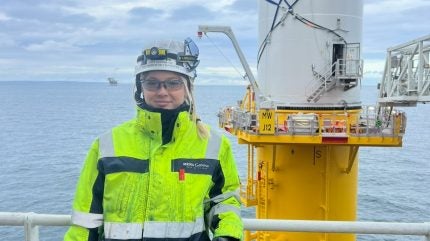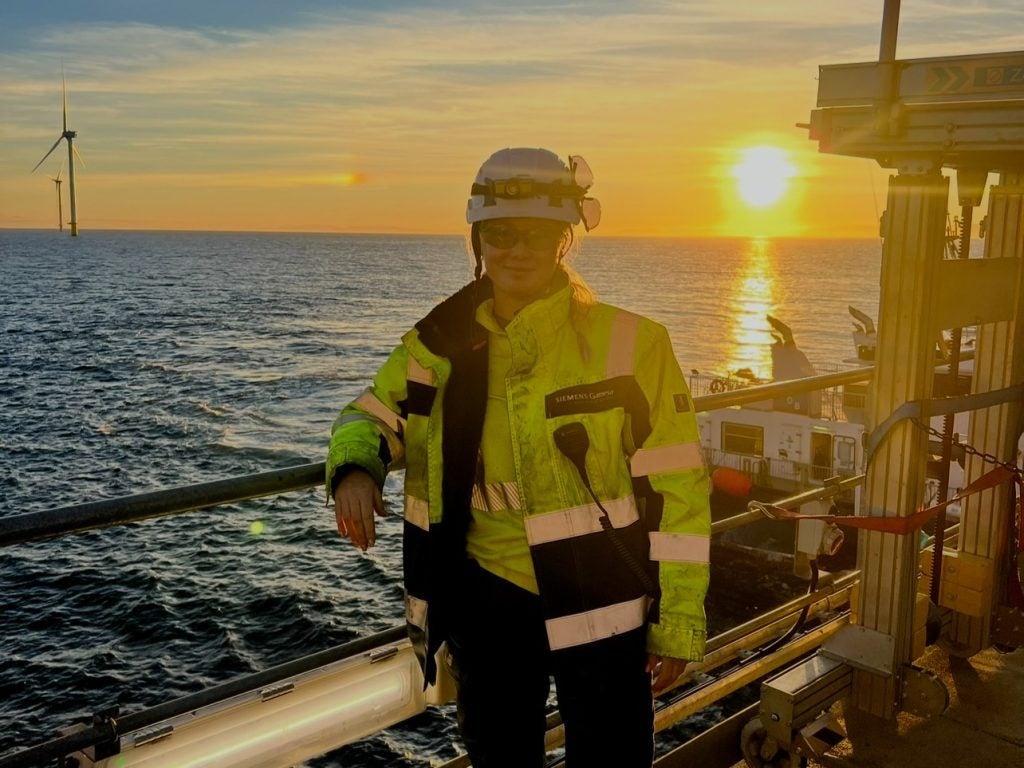
Despite the best efforts of the offshore wind industry in recent years to increase gender diversity in the field, women still account for less than 10% of the offshore wind workforce.
The offshore wind industry needs more women in the workforce, not least because this will help the industry attract workers from the largest possible talent pool.
Lucy Good studied at the Humber Energy Skills Training Academy and qualified as a fully trained electrician at the end of her first year. Now, as a Siemens Gamesa offshore wind technician, she helps install and maintain offshore wind turbines, most recently working on the Moray West offshore wind farm, off the coast of Scotland.
In honour of International Women’s Day, Good encourages women to join the offshore wind industry.

Jackie Park (JP): What initially drew you to pursue a career in the offshore wind industry?
Lucy Good (LG): I knew wind would be a key future energy source, and I wanted to be part of that. It is an incredibly rewarding industry to work in and I have found that a career in this field provides a huge number of opportunities.
A job in energy gives you so much variety in what you can do and so many chances to train in exciting technologies. Through my apprenticeship, I have travelled to many different countries, completed globally recognised training courses and even qualified as an electrician.

US Tariffs are shifting - will you react or anticipate?
Don’t let policy changes catch you off guard. Stay proactive with real-time data and expert analysis.
By GlobalDataIn my current role, there have been opportunities to train in high-voltage, installation, commissioning and managerial roles, and there is always room to learn new skills.
JP: What has been the most rewarding part of your career in offshore wind so far?
LG: The experience of working offshore for the first time will stay with me. It is an amazing environment to be in. Being on the boat miles out at sea, working on these amazing structures is a magical experience.
For the Moray West offshore wind farm project, I was working on installation. That meant working on turbines with 108m blades – as long as football pitches – out in the North Sea off the coast of Scotland. It was a unique experience and amazing to see first-hand how these technologies come to life.
Through understanding the build and installation process, you really get to see the end-to-end process, how these machines come together and are designed. I have a real sense of pride that projects like Moray West will be generating clean energy for years to come, and I have played a part in that story.
I have also loved being able to tell my stories to people outside the industry – through my job I have gone to schools to introduce students to what I do and even met some politicians. I am only 20 and have already had so many opportunities. I want to continue to inspire others.
JP: How do you think the offshore wind industry can better support and encourage more women to pursue careers in this field?
LG: Personally, I have felt hugely supported by the industry. I have my own personal protective equipment that was ordered to be suitable for me. I have been given my own locker and changing areas as well as other female-only spaces.
I have found no restrictions in my work. Most of the time, the rest of the team I work with is men, and to them, I have always been just another colleague and treated with respect.
I think the industry just needs to keep promoting roles like mine to young women and girls, because you can really build a great career as a woman in this field. It is an industry in which the focus is not on gender, but on skills, how you think and how you collaborate.
JP: What advice would you give to other women considering a career in offshore wind or other technical roles in renewable energy, especially those who may be uncertain about entering a male-dominated space?
LG: I think with any traditionally male-dominated industry, it can be daunting to be different in this kind of environment – but at work, it has really been about what I can bring technically to the table.
I have built great friendships and found brilliant mentors because I am passionate about my job and the industry. I get to work with people from all over the world with different perspectives and skills, and that has been really inspiring.
So, for women considering a career in the energy sector, I would say go for it. The more women who join the industry, the more will follow.



